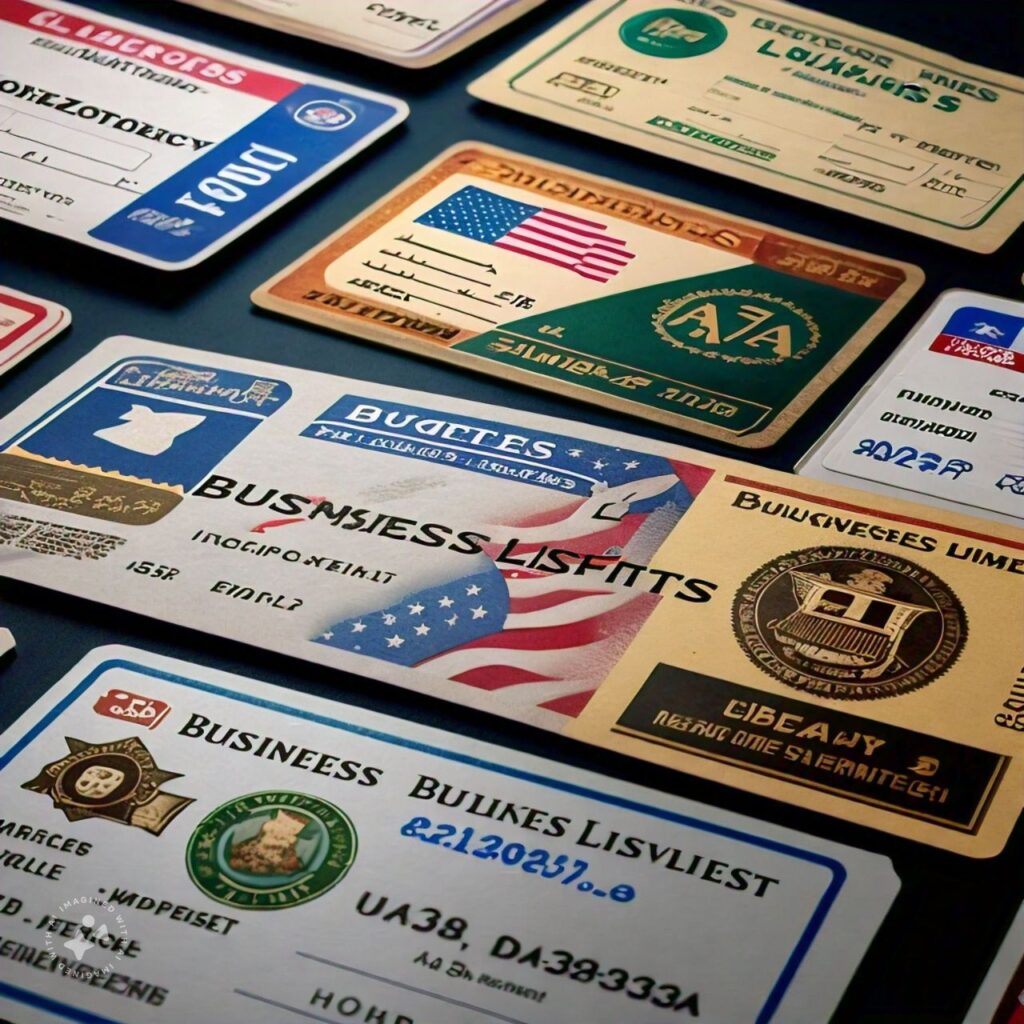In the dynamic landscape of American entrepreneurship, understanding the requirements for operating legally is crucial. Business licenses are a fundamental aspect of this legal framework, ensuring that businesses comply with local, state, and federal regulations. This article explores the importance of business licenses in the USA, the types of licenses required, and the steps to acquire them, providing a detailed guide for current and prospective business owners.
The Importance of Business Licenses
A business license is essentially a permit issued by a government authority that allows a business to operate legally within a particular jurisdiction. These licenses are crucial for several reasons:
- Legal Compliance: Operating without the necessary licenses can result in hefty fines, penalties, and even business shutdowns. Compliance with licensing requirements helps businesses avoid legal troubles and maintain good standing with regulatory bodies.
- Credibility and Trust: A valid business license enhances a company’s credibility. It signals to customers, partners, and investors that the business adheres to regulatory standards and is committed to lawful operations.
- Consumer Protection: Licensing helps protect consumers by ensuring that businesses meet specific standards and regulations, which can include health, safety, and professional qualifications.
Types of Business Licenses
In the USA, the licensing requirements for businesses vary widely depending on the type of business, its location, and the nature of its activities. Here are the main types of business licenses:
- General Business License: Often referred to as a business operating license or a business tax certificate, this license is required by most municipalities. It grants the business the right to operate within the city or county limits. The application process and requirements can vary based on location.
- Professional and Occupational Licenses: Certain professions, such as medical practitioners, lawyers, and real estate agents, require specialized licenses to ensure that practitioners meet industry standards and regulations. These licenses are typically issued by state boards or professional regulatory agencies.
- Health and Safety Permits: Businesses involved in food service, healthcare, or other activities affecting public health must obtain health permits and safety certifications. This category includes food handling permits, health department permits, and sanitation inspections.
- Zoning Permits: Zoning permits are required to ensure that the business’s location complies with local zoning laws. These permits address land use issues and ensure that the business operations align with residential, commercial, or industrial zoning regulations.
- Home Occupation Permits: If you are running a business from your home, you may need a home occupation permit. This permit ensures that the business activities do not disrupt the residential nature of the neighborhood.
- Sales Tax Permit: For businesses that sell goods or services subject to sales tax, a sales tax permit is necessary. This permit allows the business to collect and remit sales tax to the state government.
- Federal Licenses: Certain industries, such as aviation, alcohol, firearms, and broadcasting, require federal licenses or permits. These licenses are issued by federal agencies like the Alcohol and Tobacco Tax and Trade Bureau (TTB), the Federal Aviation Administration (FAA), or the Federal Communications Commission (FCC).

Business Licenses in the USA
Steps to Obtain a Business License
Obtaining a business license USA involves several steps, which can vary based on the type of business and its location. Here is a general guide to the process:
- Research Requirements: Begin by researching the specific licensing requirements for your business type and location. This involves understanding federal, state, and local regulations that apply to your business.
- Prepare Documentation: Gather all necessary documents, which may include your business plan, proof of identity, and any other relevant information required by the licensing authority.
- Complete Applications: Fill out the required application forms. This may involve multiple applications if your business needs various types of licenses or permits.
- Submit Applications and Pay Fees: Submit your completed applications along with any required fees. Fees can vary widely depending on the type of license and the jurisdiction.
- Await Approval: Once submitted, your application will be reviewed by the appropriate agency. This process can take anywhere from a few weeks to several months, depending on the complexity of the application and the efficiency of the agency.
- Receive License: Upon approval, you will receive your business license. Ensure that you understand any conditions or renewals associated with the license.
- Maintain Compliance: After obtaining your license, it’s important to stay compliant with all relevant regulations. This may involve periodic renewals, inspections, or updates to your license as your business evolves.
Conclusion
Navigating the landscape of business licenses in the USA can seem daunting, but understanding the types of licenses required and the steps to obtain them is crucial for any business owner. Licenses not only ensure legal compliance but also build credibility and trust with customers and regulators. By thoroughly researching and adhering to licensing requirements, businesses can establish a strong foundation for successful and lawful operations.
For aspiring entrepreneurs, it’s essential to invest time in understanding and securing the necessary licenses to avoid legal pitfalls and foster a positive reputation in the business community.
FAQS
1. What is the difference between a business license and a professional license?
A business license allows a company to operate within a specific jurisdiction, such as a city or county. It ensures the business complies with local regulations and zoning laws. In contrast, a professional license is required for individuals in certain professions, such as doctors, lawyers, or real estate agents. It verifies that the individual meets specific industry standards and qualifications. Essentially, a business license pertains to the legality of operating a business, while a professional license pertains to the credentials of individuals within certain professions.
2. How do I know which licenses my business needs?
Determining the necessary licenses for your business involves several steps:
- Identify the Business Type: Different types of businesses require different licenses. For instance, a food service business will need health permits, while a home-based business may require a home occupation permit.
- Check Local Regulations: Contact your city or county government office to understand local licensing requirements. Many local governments provide resources and checklists online.
- Consult State Agencies: State agencies can provide information on state-level licenses, such as sales tax permits or professional licenses.
- Review Federal Requirements: If your business falls under federal regulations (e.g., aviation, firearms), check with the appropriate federal agency.
3. How often do business licenses need to be renewed?
The renewal frequency for business licenses varies based on the type of license and the issuing authority. Generally:
- Local Business Licenses: These often require annual renewal, though some jurisdictions may have different schedules.
- Professional Licenses: Renewal periods can vary, typically ranging from every 1 to 3 years, depending on the profession and state regulations.
- Health and Safety Permits: These may require renewal on an annual basis or more frequently, depending on the type of business and local health regulations.
It’s important to keep track of renewal dates to ensure continuous compliance and avoid any interruptions in your business operations.


































Leave a Reply